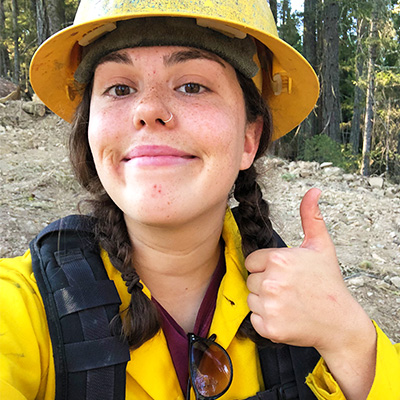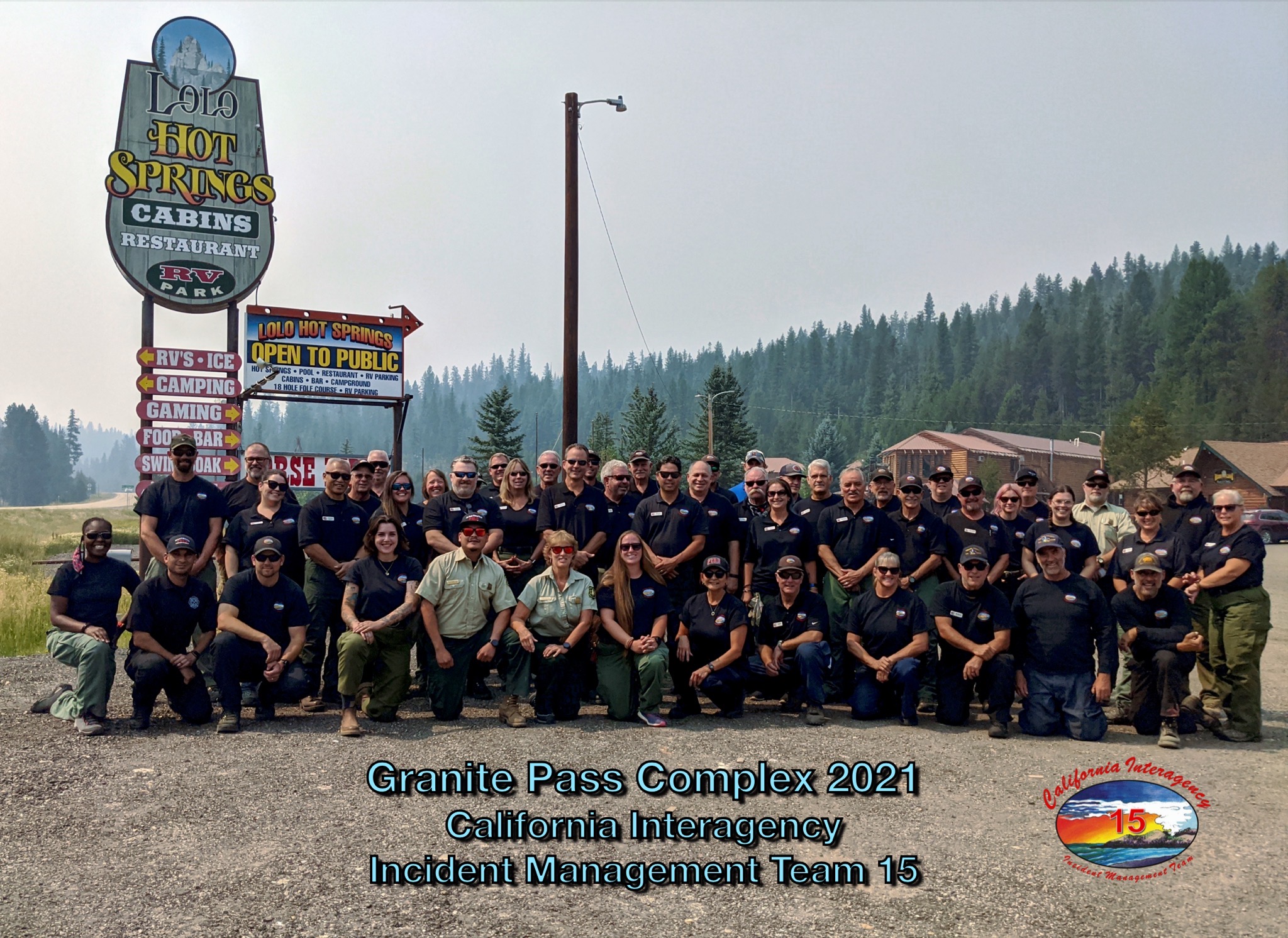Emily Dolhansky '16
be a hot shot.
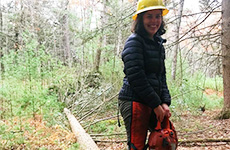
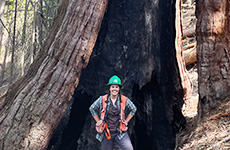
It's been six years since Emily Dolhansky told us why she chose Stockton University. Now, she will tell us how it has been since then, and why she thinks Stockton helped her become and stay a "hot-shot."
Emily Dolhansky (2016)
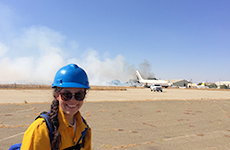
Why did you choose Stockton?
I first applied to Stockton because I remember my high school AP Environmental Science teacher telling me it had an excellent Environmental Science program. I wanted to attend a state school where I could live on campus but also visit home whenever I wanted. I immediately fell in love with the campus and could not wait to begin my studies. As an Environmental Science major, it felt appropriate to attend this University nestled in the New Jersey Pine Barrens.
Do you remember interviewing for your previous Choose profile? Can you describe that experience?
I had just finished up the summer season with the Bureau of Land Management and I was still looking for something permanent.
Many positions involving natural resources tend to be seasonal: you’ll work during the summer, get kind of laid off during the winter, and then be hired back for the summer again.
Around that time, I was offered a permanent job doing forestry in California. I finally felt like I found something that I had more of a foothold on.
What does your typical day-to-day look like nowadays?
My official title is Lead Forester for the National Salvage Implementation Team (NSIT) which is within the Bureau of Land Management here in California. There are a lot of big natural disasters out west including wildfires, drought, insect outbreaks, and big windstorms that affect our large public land system. These natural disasters can kill or damage a lot of the trees that we’re managing for timber, forest health, water quality, recreation, and many other uses.
A normal day for a forester on my team involves taking inventory of dead and dying trees and finding ways to salvage the timber. Once the dead trees are removed, we can begin the process of restoring the landscape by planting new trees. For me, I come in after big natural disturbances and, after analyzing the scope of the disturbance, take inventory of trees that can still be salvaged as lumber and sound enough to make timber products.
When there are a lot of fires burning in the west, I will often switch duties and take on more of an emergency response role. Out on the fire line, I’m a Resource Advisor (READ). In that role, I protect the natural resources from firefighting activities.
Sensitive archeology sites and streams, wilderness, and wetland areas can get really damaged from heavy equipment, containment lines, and airplanes dropping supplies and water. I go out and work with firefighters to make sure that we’re protecting the resources to the greatest extent possible without interfering with the firefighting.
Around 90% of the fires in New Jersey start from abandoned campfires or people shooting off fireworks. I think though that with climate change, the climate, especially in southern Jersey, will continue to change and make wildfires much more of an issue. It’s going to become more important to educate those who are outside of the state as well about that since other states tend to think that New Jersey won’t be as impacted as California and other western areas.
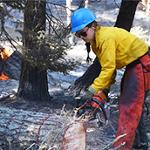
Her opinion on the Wharton State wildfires (June/July 2022)
Do you see yourself coming back to the nest or another university for your doctorate degree?
I’ve thought about possibly teaching at a community college in the future. One of my supervisors just recently got a part-time job teaching one or two nights a week and I can see myself doing that as well. I think a doctorate at this point would be a big undertaking for me since I’ve been out of school for almost four years, but it’s never too late. Dr. Dolhansky does have a nice ring to it.
What advice would you give students who are interested in your field? Are you open to mentoring students currently in the program?
Stockton University was sort of founded as an environmental school, so they have a great Environmental Science program. My biggest piece of advice is to reach out to alumni and find those resources by connecting with people.
I was lucky enough to know someone who graduated from both Stockton and my graduate program, so I reached out to him and asked “what was your experience in the program? Would you mind looking at my application package and giving me some suggestions?” Lean on this established alumni network.
It also goes both ways; I would love to connect with students in the program, even if they decide to stay local. I have local connections in New Jersey who may be offering internships and other opportunities.
